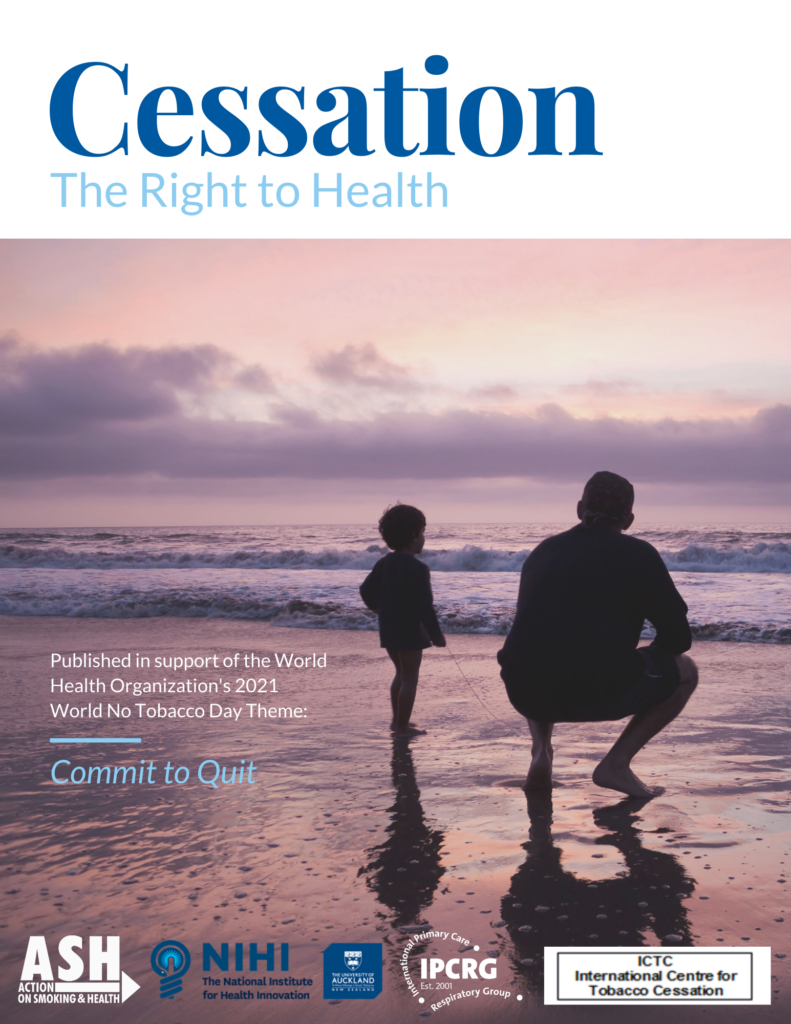The marketing and sale of tobacco products violate the right to health and life of all people globally
The Right to Health
The right to health was first internationally articulated in the 1946 World Health Organization (WHO) Constitution. The WHO preamble declares that “the enjoyment of the highest attainable standard of health is one of the fundamental rights of every human being without distinction of race, religion, political belief, economic or social condition.” The right to health was also declared a human right in the 1948 Universal Declaration of Human Rights and the 1966 International Covenant on Economic, Social and Cultural Rights. It has also been mentioned in many other international treaties, declarations and conferences.
In 2017, the UN Human Rights Council affirmed “the right of everyone to the enjoyment of the highest attainable standard of physical and mental health” and urged states “to work towards the full implementation of all Sustainable Development Goals,” including strengthening implementation of the WHO Framework Convention on Tobacco Control (FCTC), the world’s first public health treaty. When writing the WHO Framework Convention on Tobacco Control, the framers looked to human rights accords for inspiration, examples and substantive legal thinking.
The Right to Cessation
The WHO Framework Convention on Tobacco Control sets out the measures countries should take to reduce tobacco use, including WHO FCTC Article 14 – tobacco cessation support and treatment. Tobacco cessation support is effective, yet according to WHO only one third of the world’s population have access to adequate help to stop smoking. To learn more about helping countries develop effective and affordable tobacco cessation programs, please visit the website of an ASH partner, the International Center for Tobacco Cessation (ICTC).
Resources on WHO FCTC Article 14
Implementing Article 14
Guidelines for the implementation of Article 14 of the WHO Framework Convention on Tobacco Control
The Cessation Affordability Calculator
Download this tool to calculate the affordability of healthcare interventions to promote and assist in tobacco cessation
Informational Article on Cessation
To learn more about the affordability, efficacy, and effectiveness of health-care interventions for tobacco cessation, please read this 2015 article: “Health-care interventions to promote and assist tobacco cessation: a review of efficacy, effectiveness and affordability for use in national guideline development“
The Effectiveness and Affordability Review (EAR) Key Messages
The EAR concisely summarizes the evidence for tobacco cessation support, with estimates of affordability. It is designed to be used as as the evidence base for national guidelines, and to help choose what interventions to prioritize with the resources available.
Guidance on Developing National Tobacco Cessation Guidelines
This resource is designed to help countries implement FCTC Article 14. It offers guidance on how to develop national guidelines for tobacco cessation support
Model National Cessation Strategy
A template to be written and/or edited by a country
Introduction to the National Situation Analysis (NSA)
FCTC Article 14 guidelines recommend that Parties should conduct a national situation analysis, in order to develop a strategic plan for the provision of tobacco cessation support. The tools and documents described in this guide have been developed to help countries conduct such an analysis
Instructions for the National Situation Analysis (NSA)
A tool to analyze tobacco cessation support at country level: notes on how to conduct this analysis
The National Situation Analysis
A fillable template for countries to use after reading the NSA Introduction and Instructions (above)
Sample Country Guidelines to Promote Cessation
New Zealand Guidelines for Helping People to Stop Smoking
Breathing Life into the Framework Convention on Tobacco Control: Smoking Cessation and the Right to Health
2013- Benjamin Mason Meier, read the article here The harms of smoking are global in scope, and states must act multilaterally to repel this global threat to public health. Embodying this cooperative spirit, the member states of the World Health Organization (WHO) have banded together to challenge tobacco through international law. While successful in its execution, this international effort to control smoking neglects cessation interventions, thereby offering little salvation to those whose health is at greatest risk-those already addicted to tobacco. Addressing these forgotten victims requires a new paradigm for tobacco control: the human right to health.




